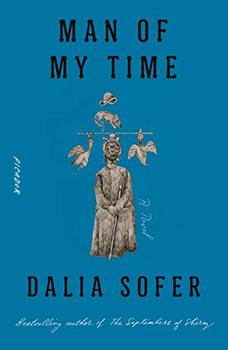Summary | Excerpt | Reviews | Beyond the Book | Readalikes | Genres & Themes | Author Bio

1
AROUND ME WAS AN ANT COLONY of black motorcars. In my jacket pocket, hidden inside a mint candy box, were the ashes of my father—Sadegh Mozaffarian—dead for two weeks and estranged from me for thirty-eight years. And next to me, in the back seat of our sedan, was my boss, the minister of foreign affairs. The Iranian delegation—among them the Minister, myself, a couple of translators, and a half dozen security men—was confined to a few designated New York blocks, beyond which we were not permitted to go. "It's like a goddamn prison," I said to the Minister on the first day of the United Nations General Assembly, when I realized the constraints of the phantom barbed wire fencing us in, and he said, "Hardly. You of all people should know."
His optimism had been tested throughout the trip. Once again American promises had been made to us and broken, the most recent excuse being a tiff between our respective navy ships in the Persian Gulf. The Americans pointed their fingers eastward, at our sphinxlike ayatollahs, who in turn stood at their Friday prayer pulpits and disclaimed involvement. Accusations and denials pinged back and forth, and made any notions of guilt or innocence mere afterthoughts.
"The sons of bitches are screwing us again," I said to the Minister that morning during a well-earned piss break from the procession of speeches. As the Saudi crown prince and the Pakistani prime minister had been hogging the bathroom stalls for over fifteen minutes, the Minister and I, despite the edicts of our religion, had no choice but to resort to the urinals. We stood with the others, a row of dark-suited men with passports from opposing nations tucked in our pockets, but all of us facing the wall like a firing squad, and sighing with relief in unison. "Resolute but open," the Minister said. "That's the only way to achieve anything."
"You know what else is resolute but open?" I said, zipping my pants.
He gave me an amused look in the mirror as he washed his hands. How I envied the Minister his forbearance. His presentation to the assembly had been so well received that for two days his face had been on the front pages of the newspapers. He had a good face, the kind that elicited trust because it suggested familiarity with the Western canon—Homer to Hemingway, Socrates to Žižek. His speech and diction, as contemplative as his face, were measured, thoughtful, and just evasive enough to suggest ambiguity bordering on mysticism. The press had parsed his every word, as if he were the holy pope himself.
The Russian ambassador was stooped over a washbasin next to us, leaning into the mirror to inspect a dark spot on his Cossack nose. Must have gotten too much sun while on holiday in Crimea. I nearly said as much but reconsidered. Leave the poor bastard alone, I thought. He probably doesn't want to be here any more than we do. This annual gathering of the world's kingpins was like a cross between high school and the Day of Judgment. We all showed up to bullshit our way out of the reckoning awaiting us, as clear as a lighthouse illuminating a black sea.
"Talking with the Americans," I said to the Minister, "is like getting butter from water. Az ab kareh gereftan."
"Patience, Hamid," the Minister said as he combed his Van Dyke beard. "We've talked about this. When will you stop being a hothead?"
"My father used to call me khorous jangi—fighting cock," I said.
"Your father is a wise man," said the Minister.
"Was," I said.
* * *
I SPLASHED COLD WATER ON MY FACE, my father's ashes heavy in my breast pocket. I shut my eyes and saw him drinking tea by our kitchen window and reading the paper, cover to cover, as he used to do each morning. My father was always impeccably dressed—a necktie and a suit, even on the hottest days. He had an old-world air about him—he knew how deep to bow, how often to smile, when to engage and when to retreat. Doctor of art history, professor for a time at Tehran University, he was affable to all and an intimate of none. A constant melancholy, so thick it could have been rehearsed, made him seem at once fragile and impervious. The man, as I remembered him, was always alone.
Excerpted from Man of My Time by Dalia Sofer. Copyright © 2020 by Dalia Sofer. Excerpted by permission of Farrar, Straus & Giroux. All rights reserved. No part of this excerpt may be reproduced or reprinted without permission in writing from the publisher.
Your guide toexceptional books
BookBrowse seeks out and recommends the best in contemporary fiction and nonfiction—books that not only engage and entertain but also deepen our understanding of ourselves and the world around us.